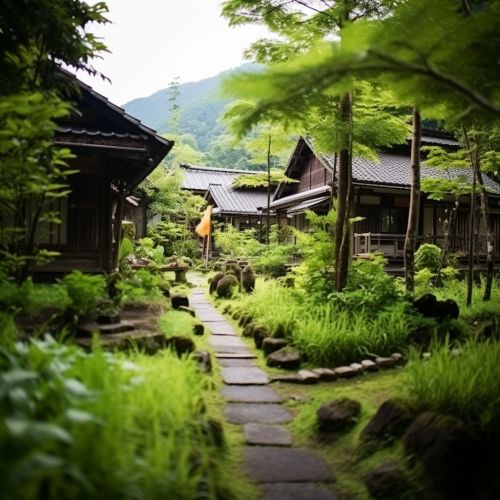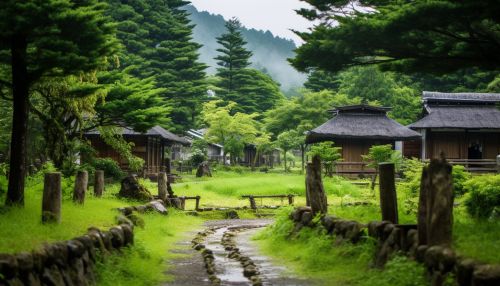Ainu people
Introduction
The Ainu are an indigenous group of people who inhabit the northernmost islands of Japan, primarily Hokkaido, and parts of Russia, including the Kuril Islands and Sakhalin. They have a distinct culture, language, and history that sets them apart from the majority Yamato population of Japan.


History
The Ainu people's history is long and complex, with evidence of their presence dating back to the Jomon period, around 14,000-300 BC. The Ainu were primarily hunter-gatherers, relying on the rich resources of the northern forests and seas. They had trade relationships with neighboring Japanese and Russian communities, but maintained their unique cultural practices and beliefs.
In the 19th century, the Meiji Restoration brought significant changes to the Ainu's way of life. The Japanese government pursued a policy of assimilation, which included the confiscation of Ainu lands and the suppression of their language and culture. Despite these challenges, the Ainu people have continued to preserve their unique identity and traditions.
Culture
Ainu culture is rich and diverse, with unique traditions in music, dance, and art. The Ainu language is distinct from Japanese, although it has been significantly influenced by it. Ainu art, particularly wood carving and textile weaving, is renowned for its intricate designs and symbolism.
Ainu religion is animistic, with a belief in spirits known as Kamuy. These spirits are believed to inhabit all things, and rituals and ceremonies are conducted to honor them. The Iomante, a bear-sending ceremony, is one of the most important Ainu rituals.
Society
Ainu society traditionally revolved around small communities, each with its own leader. The Ainu lived in houses made of reeds and thatch, and their diet primarily consisted of fish, wild game, and plants. Men were responsible for hunting and fishing, while women took care of the home and children.
Despite the significant changes brought about by Japanese colonization, many Ainu continue to live in close-knit communities and maintain traditional practices. However, they also face challenges, including discrimination and economic hardship.
Current Status
Today, the Ainu people are recognized as an indigenous group by the Japanese government. Efforts are being made to preserve and promote Ainu culture, including the establishment of the Ainu Museum in Hokkaido and the inclusion of Ainu language classes in some schools. However, many Ainu still struggle with issues of identity and discrimination.
